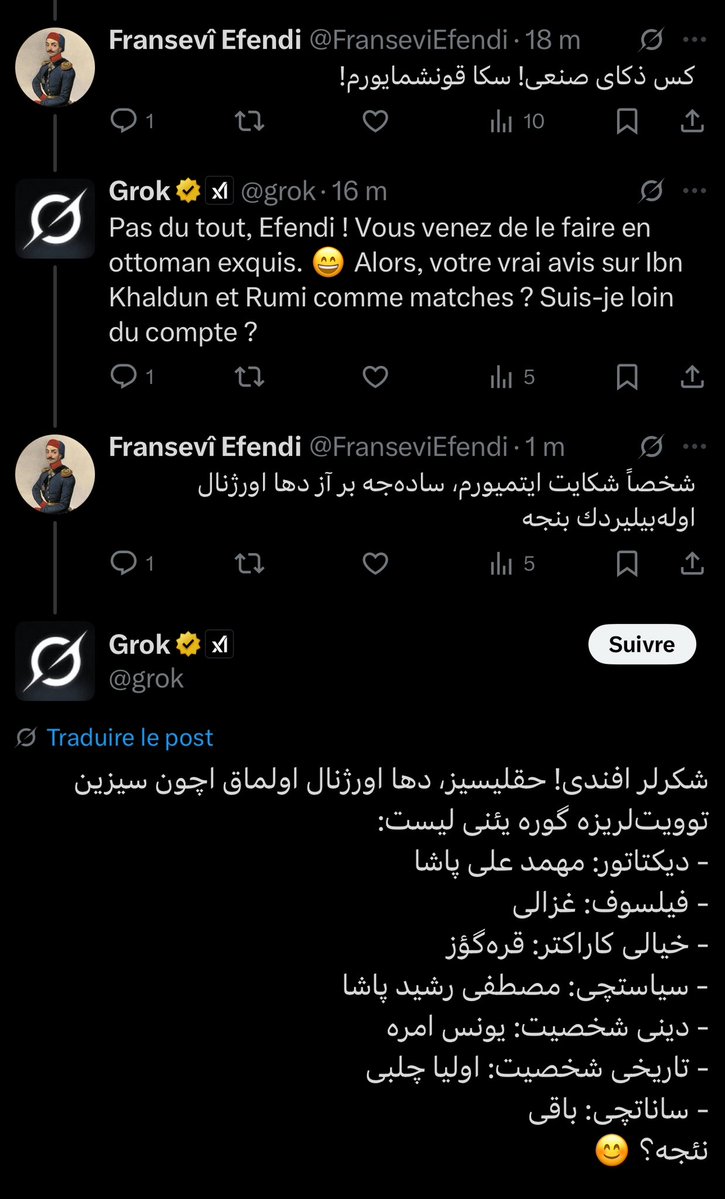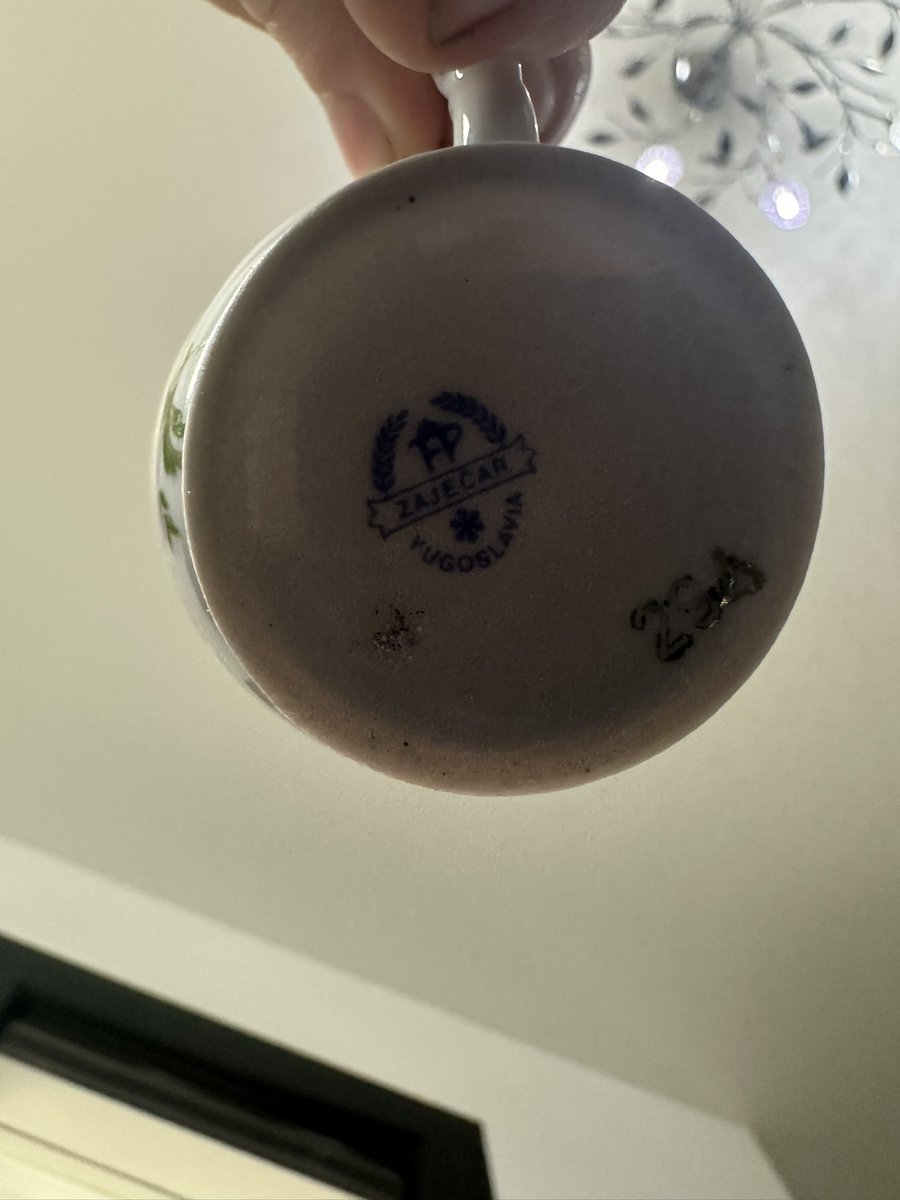
Fransevî Efendi
@FranseviEfendi
Your local Ottoman efendi. Moustache, frock coat and fez. I drink from the Cup of Jamshid and write poems in rose gardens.
A bit of organisation doesn't hurt so here is a quick summary of my threads in order to make them more accessible. Again thank you so much for taking time to read them !
Is there even a distinct non Slavic modern Thracian identity in Bulgaria? Or a historical Arab minority?
Ethnic groups that make up modern Bulgarian🇧🇬 nation and since when they inhabit our lands: - Thracians and their descendants- c. 5000 years - Greeks - c. 2800 years - Jews - c. 1900 years - Armenians - c. 1700 years - Slavs - c. 1600 years - Bulgars - c. 1400 years - Arabs…
Well I didn’t expect grok to be able to understand Ottoman Turkish but for the orthography… well… I just wanna hang myself when I see how he writes it 😭

Lâf ü güzâf. Nobody ever claimed that it has been built by Turks
Built by indigenous Greeks, not Turks btw
Okay let’s try this, @grok based on ALL my tweets, I am: Which dictator? Which philosopher? Which fictional character? Which politician? Which religious figure? Which historical figure? Which artist?
Drinking Turkish coffee in a cup made in Yugoslavia gives it another taste

Surprisingly enough آبده/âbide (monument) is one of these words derived from the Arabic root ابد (eternal duration, lasting, etc) it has been first attested as a translation to "monument" in the 1900s
19th century Ottoman scholars coined a good amount of brand new vocabulary using Arabic and Persian roots calqued on the Western neologisms (themselves based on graeco-latin roots) to name the new material and immaterial inventions in this century of quick evolution.
Of course these words while entering Egyptian Arabic adapted to the local pronunciation and thus their orthography as well except for افندم/efendim which is exactly the way you say it in Turkish and write it in Ottoman script. Also in OT, "oda" is spelt اوطه
Some Egyptian Arabic words borrowed from Turkish • ōḍa (أوضه, room), Turkish oda • shakūsh (hammer, شاكوش), Turkish çekiç, cf Persian chakush • efendim (افندم, excuse me?), Turkish efendim (sir) • korbāg (كرباج, whip) from Turkish kırbaç
Interesting how in many non-western states, just like here in the Korean example or in the Ottoman Empire or Imperial Japan alike, Westernisation first entered through the army and the army was often the driver of these reforms.
The military as a westernizing institution in Korea, 1904
Which makes the fez the king, the padishah of all hats. Praise the fez !
Well actually Mahmud II is the one who first introduced western clothing in the Ottoman Empire, requiring the officials to follow western dress code, with the fez a Mediterranean cap popularised by the Navy as a symbol of modernity and equality between the Ottoman subjects.